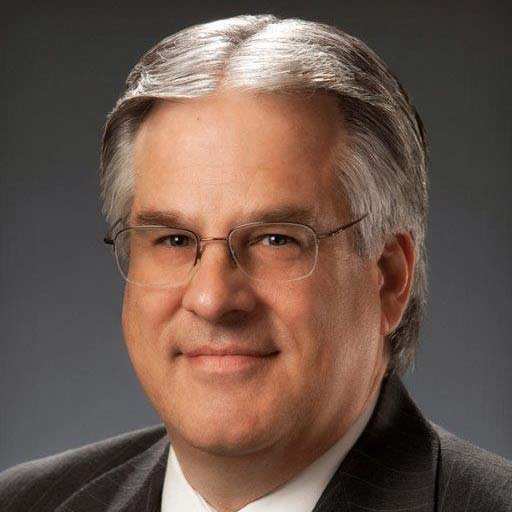A Conversation With Bill Ermatinger

Bill Ermatinger
Chief Human Resources Officer for Huntington Ingalls Industries
Since 1886, Huntington Ingalls Industries has built more ships in more ship classes than any other U.S. military shipbuilder, including every U.S. Navy aircraft carrier in existence.
Huntington Ingalls has a sizable workforce -- employing more than 41,000 workers domestically and internationally -- and it requires very highly skilled workers. But "hardly anybody does shipbuilding," says Bill Ermatinger, executive vice president and CHRO of Huntington Ingalls.
To attract, train and keep the labor force it needs for "Hard Stuff Done Right," as the company motto runs, the country's largest military shipbuilder had to become a shipbuilding college as well.
In 1919, the company founded its Apprentice School in Newport News, Virginia, and added a second campus in Pascagoula, Mississippi, in 1952. There, students enter two- or four-year programs in fields ranging from welding to modeling and simulation. Students split their time each week between classroom training and working on their craft under instructor supervision -- and graduate right into full-time jobs with no student loan debt.
Though well-established in Europe, this method of skills training is unique in America. But manufacturing's labor shortage needs a solution, as Ermatinger explains in the following CHRO conversation, and there's a lot that concerned businesses, legislatures and educators can learn from Huntington Ingalls' approach.
Emond: CHROs tell me all the time that the U.S. really ought to have something like the German apprentice programs. And that's really what the Apprentice Schools at Huntington Ingalls are, right?
Ermatinger: That's exactly it. Shipbuilding in this country has always been more about the product rather than the people building it. Historically, manufacturing only needed able bodies. But we came to the realization early on that we are really good at building ships because we're also really good at building a workforce and leadership factory. So 100 years ago, we created the first Apprentice School program to develop our own people. Because when you need human capital, you have two choices -- you can either create your own talent or you can steal it. And hardly anybody does shipbuilding. We've always had to grow our own talent because there just aren't enough people who possess the skills we need to steal.
Emond: Tell me about these schools.
Ermatinger: They would look very familiar to anyone who went to college. Classrooms, sports teams, dormitories, alumni associations wherever you go. I think what comes to most people's minds when they hear "apprentice school" is a kid hired right out of high school, assigned to an electrician or a welder or somebody for eight weeks or 12 weeks, and bingo, the job starts. This is totally, totally different. You spend half your time in the classroom with our professors and our instructors -- we have over 130 trade instructors -- and the other half is applying your craft on the job. Students are employees on day one, earning from $35,000 to $40,000, with full-time benefits, pensions, and we're paying for their schooling as well. So they actually graduate with no debt. There are 19 majors (things like welder, pipefitter, rigger, sheet metal, insulator) and eight advanced programs (like cost estimator, domestic controls, marine design, modeling and simulation, planner, nuke test). Things that most colleges do not specialize in. We are accredited by the Commission of the Council on Occupational Education, we have many transfer partnerships with colleges like William & Mary and various community colleges like Mississippi Gulf Coast Community College, and we even have a partnership with Old Dominion University where we offer a bachelor's degree in marine engineering.
Emond: How many students on campus, typically?
Ermatinger: Between the two schools, we have a freshman class of about 500 students and we have about 1,500 folks in the program at any given time. We've had about 12,000 graduates since 1919, but we get about 11,000 applications from around the country every year. So our acceptance rate is about 4%, 5%. I like to brag that our acceptance rate is lower than Harvard and Yale, and even the U.S. Naval Academy. There's no requirement that you stay with us after you graduate, but the majority of them do -- about 80%, even after 10 years. We spend over $100 million a year in workforce development and training. About $20 million of that is targeted to our Apprentice Schools.
"Our acceptance rate is lower than Harvard and Yale, and even the U.S. Naval Academy."
Emond: So you have all these kids from across the country and only 4% to 5% get in. Were most of them college-bound?
Ermatinger: Half my freshman class coming in had either a college degree, completed some college classes or an accreditation somewhere else. You know, normally college dorms are specced out for single 18-year-olds. We had to work with the developer to make sure that there are dorms for that 18-year-old right out of high school. We also need facilities for married couples. And we need facilities for students with kids of their own.
Emond: What percentage of your leadership pool graduated from the Apprentice School?
Ermatinger: It is a great feeder pool for leadership. In fact, a former Newport News [Shipbuilding] president is an Apprentice School graduate. Maybe 10% of our vice presidents are, but we are very light on vice presidents. A lot of directors, which is the level below them. We like to say we teach three things -- craftsmanship, scholarship and leadership. Craftsmanship is that on-the-job learning you'd probably associate with the word "apprentice." Scholarship is that coursework in the classroom, the geometry and algebra and humanities, things of that nature. And then leadership. A lot of our graduates, obviously, become foremen and then general foremen and so forth. They are the pipeline of our leadership team, and what better time to learn those skills than in your early education? In fact, Homer Ferguson -- a former president who founded the Apprentice School 100 years ago and led the shipyard through two world wars and the Great Depression -- is remembered as a visionary leader who cared for shipbuilders and set the stage for the company's continued success. In fact, his great-grandson, Alexander Ferguson, began his career last summer as an outside machinist. He came to us possessing two degrees already, but will be attending the Apprentice School. He said, "I believe it is one of the best educational opportunities in the country."
Emond: Is there anything you know of anywhere in the United States that is even remotely like this?
Ermatinger: No. We have testified and provided tours more times than we can remember to various legislative representatives on this issue, because everyone, especially in the last five years, talks about apprentice programs. What does it take to launch, what's the investment, what's the ROI, what kind of employees do you get for it? Most companies find the upfront costs to be the deterrent. And sure, I wish the educational system could produce the talent that all businesses need. That's not happening. As I said, I don't have the luxury of stealing talent from someone else who already made that investment. There aren't a lot of companies in existence that build nuclear-powered aircraft carriers or submarines or destroyers or amphibious assault troop carriers.
"I don't have the luxury of stealing talent from someone else who already made that investment."
When I was the chair of the Virginia Chamber of Commerce, this issue came up a lot because workforce development is the No. 1 issue for business leaders. And I kept saying, "Partner with your local community colleges! Community colleges are really, really good at knowing the community's business needs." But community colleges don't always have the resources they need. At HII, we give all our course curricula to any community college that wants it. We give it to Tidewater, we've given it to Thomas Nelson, and we gave it to the Gulf Coast of Mississippi. Why not? The money's already spent. And if they can graduate somebody over there with our curriculum under our standards, then we don't have to worry about certifications. I'm always surprised that so many businesses want to hold their training materials proprietary.
Emond: Do you think that eventually more companies will make the capital investment and build an apprentice school like yours? Or do you think it's likelier that communities will do that through a community college situation?
Ermatinger: I'm seeing state legislatures starting to ask this question. They're looking at every economic forecast, seeing where the jobs are, but there's not a lot of progress. There's some legislation to start encouraging career-ready skill sets. But in general, these are little, tiny, mini experiments of apprenticeship for kids interested in healthcare, IT, machining, electrical, pipe or carpentry. It's not nearly enough. If you're going to tell kids that not everybody needs to go to college, then you've got to have an alternative for them. I believe Virginia was one of the first to make a real investment in this. I think Mississippi is going to go down that path as well. But I think what you're really asking is, if you want to launch an apprenticeship program in your town or company, where's the money going to come from and where should it be spent?
Emond: Right.
Ermatinger: I think you should start at the high school level. That's where businesses can come into play. Maybe produce the seed money for your local high school's apprentice program. And if you can't afford the seed money, you can certainly afford to send your people over to the high school to teach. There's a lot of ways that you can contribute, maybe not on the Apprentice School scale, but on some scale.
Emond: Let me get back to the leadership component of the Apprentice School. What are students learning? Why are you teaching leadership to people just starting their careers?
Ermatinger: About 20 years or so ago, we were finding that the folks graduating from our apprentice program are the ones trying to advance their career beyond their craft. They want to be a foreman, then a general foreman, superintendent and so forth. And, like many companies do, we spent a lot of time and energy training people to be leaders -- but on the back end, after they'd already been managers. So if I already know that a majority of my apprentice graduates are going to be leaders one day, why don't I train them myself? Why wait until they've been a foreman for 10 years to teach them how to collaborate. How to communicate. How to engage a workforce. How to motivate. Let me get the habits and ideas you'll need into you in the front end, while I've got you in the classroom. That's what we're working with William & Mary on, those leadership skillsets.
Emond: Will the Apprentice School continue forward the way it is? Or is there a next stage of evolution of the program?
Ermatinger: Like every educational institution, we're evolving. We didn't have an advanced modeling and simulation program even 10 years ago. It wouldn't shock me if we get into robotics or artificial intelligence. Looking at the history of this program, it's never had a problem morphing itself, adding and adapting. We'll be able to meet whatever technology is in front of us. With whatever transformational or instructional tool that we need.
Emond: What's the employee experience of your people coming out of the Apprentice School?
Ermatinger: Well, let me put it this way -- my core belief is that everybody desires three things in a job: They want to be challenged every day. They want to feel like they're a part of something bigger than themselves. And they want to enjoy what they do. So are you going to be challenged at Huntington Ingalls, building the most complicated machine known to man? Absolutely. Are you a part of something bigger than yourself? Well, everybody here knows they ensure that our nation has the capability it needs. Our employees like to say, "We don't decide where our assets go, but if it goes into harm's way, we make sure it's never in a fair fight."
The third one is, do you enjoy what you do? That's something that employees themselves have to work on. So we try to make sure that they really understand how you are a part of us. How you add value. How you can be developed. The nice thing is -- unlike a lot of companies -- I have my own fire department, I have my own emergency medical system, I have my own police department. We're a small town in ourselves. So employees realize they could change careers entirely without leaving the company. You could be a pipefitter or a nuclear quality inspector or a football coach at Huntington Ingalls.
"Our employees like to say, 'We don't decide where our assets go, but if it goes into harm's way, we make sure it's never in a fair fight.'"
Emond: That reminds me of a meeting I had in Paris last June -- we were talking about how all the kids want to go to work for sexy tech companies. And the CHRO of ABB, JC Deslarzes, said, "Not us. Companies like us have heritage. We have a purpose in the world. You guys are just not telling your story the right way." And he's right -- ABB is one of, and may be the No. 1, most sought-after companies for Swiss college graduates.
Ermatinger: I agree. If you have a story to tell, tell it the right way and make sure it resonates with purpose. When we go to college fairs, not everybody knows the name Huntington Ingalls, but as soon as we tell our story, people get very interested in us.
Explore other CHRO conversations:
- Amazon CHRO Beth Galetti
- Dignity Health EVP and CHRO Darryl Robinson
- Sanofi CHRO Roberto Pucci
- Microsoft CHRO Kathleen Hogan
- Mayo Clinic CHRO Cathy Fraser
- Roche CHRO Cris Wilbur
- ABB CHRO Jean-Christophe Deslarzes
- Roche CHRO Cris Wilbur and Global Head of Talent Innovation Tammy Lowry
- Genpact CHRO Piyush Mehta
- Schlumberger HR Chief Gavin Rennick
- UBS Group Head Stefan Seiler
Jennifer Robison contributed to this article, which was based on an interview conducted by Larry Emond.




